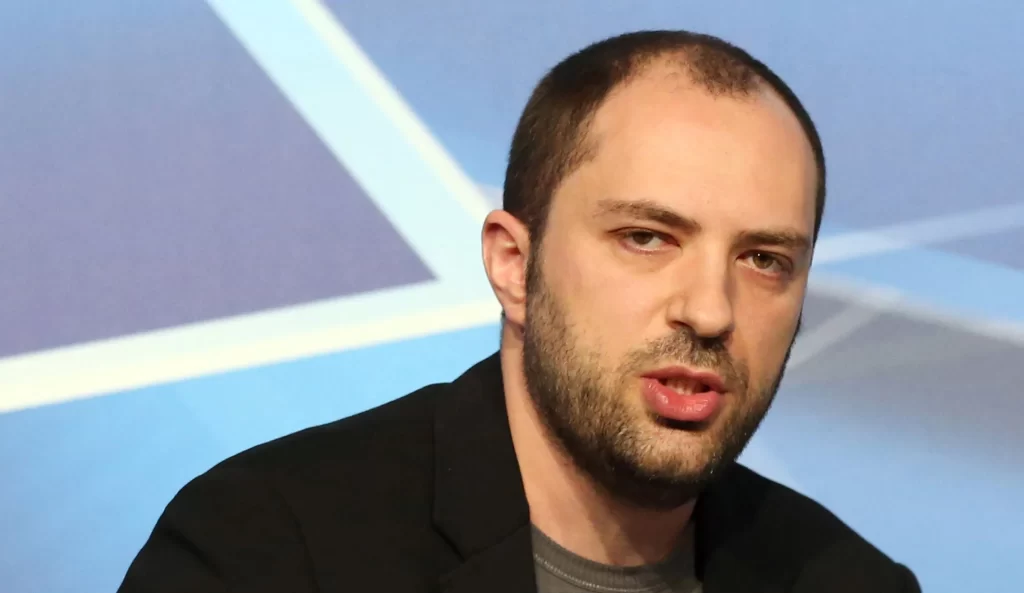
Jan Koum is a Ukranian American entrepreneur and computer programmer also known as the co-founder and CEO of WhatsApp, a cross-platform messaging and VOIP service that allows sending of text messages and voice calls, other media, and documents.
Early years and education
Koum was born on February 24, 1976 in Kiev, Soviet Union. He immigrated to the United States with his mother and grandmother when he was 16. Koum’s father never left Ukraine and died in 1997. As a teenage, Kuom worked as a cleaner at a grocery store and showed interest in computer programming when he was 18. He worked as a security tester at Ernst & Young while studying at San Jose State University. He met Brian Acton while working at Ernst & Young. In 1998, Kuom joined Yahoo as a Security and Operations Engineer until 2004 when he became Infrastructure Engineer up until 2007. Koum and Acton worked at Yahoo together and both left the company in 2007. Kuom and Acton also applied to work at Facebook but both were rejected.
After Koum and Acton left Yahoo, they travelled to South America and both applied for jobs at Facebook, both of them also got rejected.
In 2009, Koum bought an iPhone and saw great opportunity on the App Store. Koum thought that it would be nice to have statuses next to people’s names and discussed this idea with his friend Alex Fishman, but he also realized that they would need an iPhone developer to implement this. They found Igor Solomennikov, a Russian developer and Kuom named the app Whatsapp. In the following month, Kuom incorporated WhatsApp Inc. in California but because the app was not stable, he thought of just dropping the idea and to look for a new job. Acton encouraged Koum to wait for a few more months.
In June 2009, Apple introduced push notification which allows users to be pinged even when they were not using an app. Koum updated Whatsapp so that when a user changes their status, everyone within the user’s network would be notified. Fishman’s friends started using the app to ping each other and custom funny statuses. It became an instant messaging app and Kuom realized he inadvertently created a messaging service. At the time, the only free text messaging service was Blackberry’s BBM but that only worked among Blackberry devices. Whatsapp was unique compared to other instant messaging services because it uses the user’s phone number as login. Kuom launched Whatsapp 2.0 with an instant messaging feature and the number of active users rapidly increased to 250,000.
Acton joined Koum and persuaded former Yahoo colleagues to invest $250,000 in seed funding. Acton became a co-founder and was given a stake. In November 2009, Whatsapp was launched exclusively on the App Store for the iPhone. Koum and Acton started receiving emails from iPhone users who were thrilled to the idea of sending international text messages for free to their Nokia and Blackberry friends. Two months later, the Blackberry version was also released, developed by Chris Peiffer.
Koum and Acton worked for free for the first few years and one of their biggest cost was the verification text to users which costed 2 cents to US users and 65 cents to the Middle East. Whatsapp started bringing in revenue by early 2010 which was just enough to cover the verification text costs. Whatsapp slowly switched from free to paid service so it would not grow too fast. In December 2009, Whatsapp was updated to allow sending of photos and the number of users continued to increase despite the verification text fee.
Funding
By 2011, Whatsapp was in the top 20 of all apps in the US App Store. Koum and Acton also agreed to take $8 million from Sequoia on top of their $250,000 seed funding.
In February 2013, Whatsapp’s active users had reached to 200 million with 50 staff. The duo thought they need to raise more money for insurance so they decided to secretly hold a second funding round. Sequoia invested another $50 million, valuing Whatsapp at 1.5 billion.
Facebook Acquisition
In February 2014, Mark Zuckerberg, founder of Facebook invited Kuom to have dinner with him at his home and offered Koum a deal to join the Facebook board. In less than 2 weeks, Facebook announced that it was acquiring Whatsapp for $19 billion.
In 2016, Koum sold more than $2.4 billion worth of Facebook stock but he is estimated to still own at least $2.4 billion worth of Facebook stock.
In April 2018, Jan Koum announced that he was leaving Whatsapp and stepping down Facebook’s board of directors. A few months later, it was known that Kuo was still employed by Facebook, earning around $450 million in stocks through “rest and vest”.
Net Worth
Jan Koum’s net worth as of February 2019 is $9.6 billion.